Are you familiar with that feeling of confidence that comes when you’re 100% confident, heck, you’re 150% sure you’re in the know and then you discover that you should put your foot in your mouth? Has this happened to you? Why? I’m only asking because we often follow a few practices to have our hair in tip-top condition, and they could well be the right ones, but then you find out you were missing something important, something that could be damaging your hair. Like what, you may ask? Well, have you thought that there are ingredients in your hair products that take moisture away from your natural hair and could potentially undermine all your goals?
The hair care industry is full of products, there are literally thousands of products out there manufactured and advertised to target all hair types, needs and conditions and while we may think that all these companies have your hair’s best interests at heart the truth is money comes first. Many products have ingredients in their formulas that strip moisture from it or prevent access to it. Why, because they lower manufacturing costs and increase profits, and because we, the consumers, are not aware of what these ingredients do to our hair.
Until recently, it was hard to find products addressing this issue which raised concerns in a few consumers, and the big names in the industry didn’t find this a big enough market segment to invest. Fast forward a few short years and almost everyone wants to jump in on the natural organic bandwagon, and the natural hair movement sure gave a helping hand here. Woohoo! Good for us naturals I say because some of the ingredients I’ll be talking about are not just potentially damaging to natural or transitioning hair, but to Caucasian hair too. We have to be careful, what you see and read on the front label of hair care products is many times different from what is printed in the ingredients list at the back. Here is a short list of ingredients you should avoid.
Alcohol
You can easily find this clear and colourless ingredient in your first aid kit, in beverages, cleaning products, antiseptic wipes, in hair care products or used as a preservative. It’s basically everywhere. It is used in formulations to allow water and oil to mix to form an emulsion and to give products better spreadability. Although it can be mixed with water and help retain it (hygroscopic), which is particularly useful for our hair, there are two types of alcohol – the good ones and the bad ones.
The main problem with the bad alcohols is that they evaporate easily, due to their short chain of fatty acids, not helping to retain moisture in for long, and leaving your hair frizzy and dry, or drier depending on its concentration and place in the product formula. On the other hand, the good alcohols have a long chain of fatty alcohols and are better because they condition your hair and could be seen as “oily”, retaining moisture in for longer. Look out and try to avoid these alcohols:
- Alcohol
- Ethanol or Ethyl Alcohol
- SD (Specially Denaturated) Alcohol
- Isopropyl Alcohol
- Isopropanol or Propyl Alcohol
- Propanol
Mineral Oil/Petrolatum/Parafinum Liquidum
Derivatives of crude oil, these ingredients are often found in baby, cosmetic and hair care products and even cleaning products. Its use on cosmetic products is “justified” because they provide a barrier to our hair and skin against the environment, and because they can work as a sealer retaining moisture in, helping with detangling and giving us the appearance and feel of soft and shiny hair.
However, despite the apparent good they can do, they form a tight seal on our natural hair. They restrict moisture intake from the outside, therefore when the moisture inside your hair evaporates your hair becomes dry as it can’t have enough access to it from the environment. With continued used your hair will become brittle and break. You need to be careful with these ingredients as, depending on concentration in the product formulation, they can only be removed with regular shampoos, which are drying to our hair. If not removed completely they will create build up, further asphyxiating your hair. Give preference to vegetable oils and butters, they are much better for your hair.
Silicones
This is perhaps the most vilified ingredient of them all. You can find it in shampoos, conditioners, deep conditioners, serums and in just about any hair product you can get your hands on. They are used because they condition, lubricate, provide lustre, help with detangling, prevent frizz and from the effects of humidity, protect against heat styling and more could be said about them. They are really useful! However, if you don’t know how to use them properly they can cause havoc.
Some people like to stay away from all types of silicones however, you don’t need to do this. The main problem resides in the ones that are not water soluble and if you use them and your hair is not properly moisturised. Similar to mineral oil and petrolatum, silicones seal your hair with any moisture that there is in it, protecting it from the outside but also difficulting water intake. It is very important that you moisturise your hair first.
Another disadvantage of these water-insoluble silicones is that they are difficult to remove from your hair and if you use them on a regular basis they can create build up and prevent your hair from receiving proper moisture, making your hair drier and drier. You would need to use a regular or clarifying shampoo to remove them.
If you want to know more about silicones and have access to a Free list of 60+ silicones identified by their solubility first read Why Silicones On Natural hair Just Rock! In the meantime here some of the most popular silicones you’ll find.
- Amodimethicone
- Dimethicone
- Cetearyl Methicone
- Cetyl Methicone
- Dimethiconol
- Stearyl Dimethicone
- Cyclopentasiloxane
Sulphates
Sulphates are surfactants, ingredients that are used to remove dirt, oil, dust, air pollution and oil from our hair. They bind to these elements and to water forming a foam. When the hair is rinsed all is washed away and the hair is then clean. You will find them in shampoos, hands soaps or products that have some detergency. But, you can also find surfactants in conditioners, leave-ins and some other hair products, albeit having a different function.
Surfactants don’t remove moisture from the hair “per se” like silicones or petrolatum can, but strong surfactants do strip your hair from sebum (its natural protective layer) which makes it dry and brittle. As this happens the cuticle layers of the hair are open, rubbing against each other and potentially breaking, making it difficult for moisture to stay in. Therefore, sulphates can, in a way, take moisture from your hair. The best way to defend yourself against them is to choose a sulphate-free shampoo, cleansing conditioner or opt for a natural alternative which is more gentle for on your hair. Here are some sulphates you should avoid.
- Sodium Laureth Sulphate
- Sodium Lauryl Sulphate
- Sodium Myreth Sulphate
- Ammonium Laureth Ether Sulphate/ Ammonium Lauryl Sulphate
- Ammonium Xylenesulfonate
- Sodium Xylenesulfonate
- Sodium Cocoyl Sarcosinate
In the quest to have the healthiest hair we can have, we sometimes miss important bits of information that can make a big difference, and then wonder why are we doing everything right and our hair is not responding. Well, it could be this. But don’t feel bad, we all do this. If you’re having problems keeping the moisture in your hair look to see if you have these ingredients on your products (especially in the first five ingredients) and look for products with better alternatives. If you need help leave a comment below and I’ll help you navigate through this sea of information.
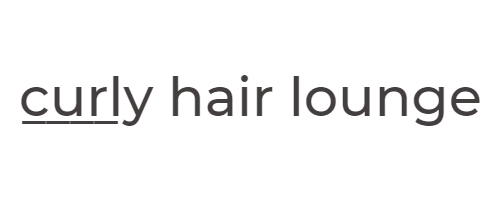
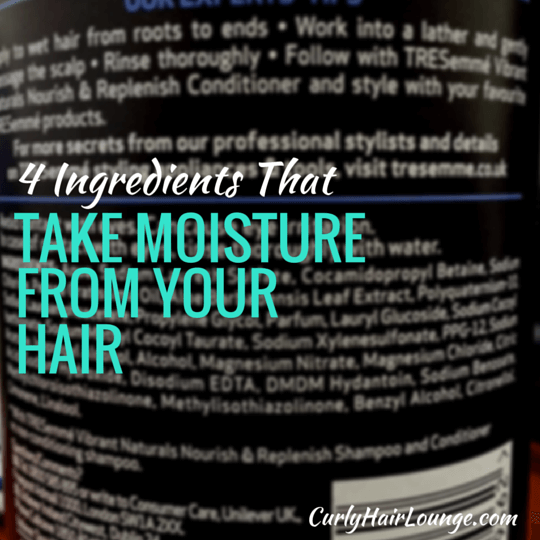
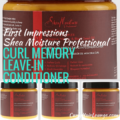
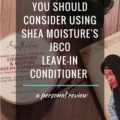
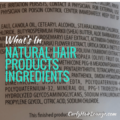
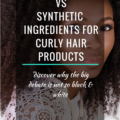
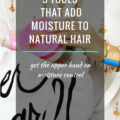
4 thoughts on “4 Ingredients That Take Moisture From Your Hair”
Can you recommend natural shampoos and conditioners ? Thanks !
Hi Rossie,
You can check natural shampoos here and here. As for conditioners you can check here it has a few natural options. Hope thsi helps.
Monica
I agree with you with the exception of silicones and mineral oil. There are studies that suggest that these two ingredients are better than natural oils for sealing moisture into the hair. There are ingredients out there that are demonized in the natural hair community without and real understanding of what the research really says about these ingredients. Someone’s use of products with these ingredients really comes down to their own natural hair philosophy. Sulphate are demonized but they do have a place in a natural Hair Regimen for the purposes of clarifying the hair. If used it should be followed up with an excellent and effective deep conditioner to put moisture back into the hair, soften the hair and seal the cuticle.
Hey Susan,
Sorry for the late reply, been busy, busy…
Anyway, you’re right! I can see that you are well informed. There are studies that claim that mineral oil and silicones are better at sealing in moisture. The problem remains that their regular use equates to build up on the hair which makes it hard for moisture to even penetrate your hair. Result – dry hair. Consequently, you’d need to increase the use of clarifying sessions to remove build up. These are shampoos meant to strip your hair, which will make it dry.
However, this doesn’t mean you can’t include them in your hair routine, but you have to be aware of how you use them and how it will affect your hair, so you can put hair practices in place to minimise any negative effects. In my post, Why Silicones On Natural Hair Just Rock! I make reference to this.
Sulphates are also a great example. They do have a place in a hair routine. Whether you’re a sulphate free, no-poo or even a co-wash supporter there will always be the need to use a clarifying shampoo (which have stronger sulphates) for the purpose of removing build up from film-forming ingredients and natural ingredients and hard water minerals from the hair and scalp. I explain this in these articles if you’re interested: Why Should You Clarify Natural Hair?, Know How Hard Water Can Damage Curly Hair & How To Fix It , 5 Things You Need To Know When Co-Washing Curly Hair, Co-Washing, Does It Really Clean Your Hair? and 5 Tips It’s Time To Use A Clarifying Shampoo. You will find more info on the blog.
Thank you for making this point and opening up the discussion.I love to talk about these topics and make people aware of them. 🙂
Monica